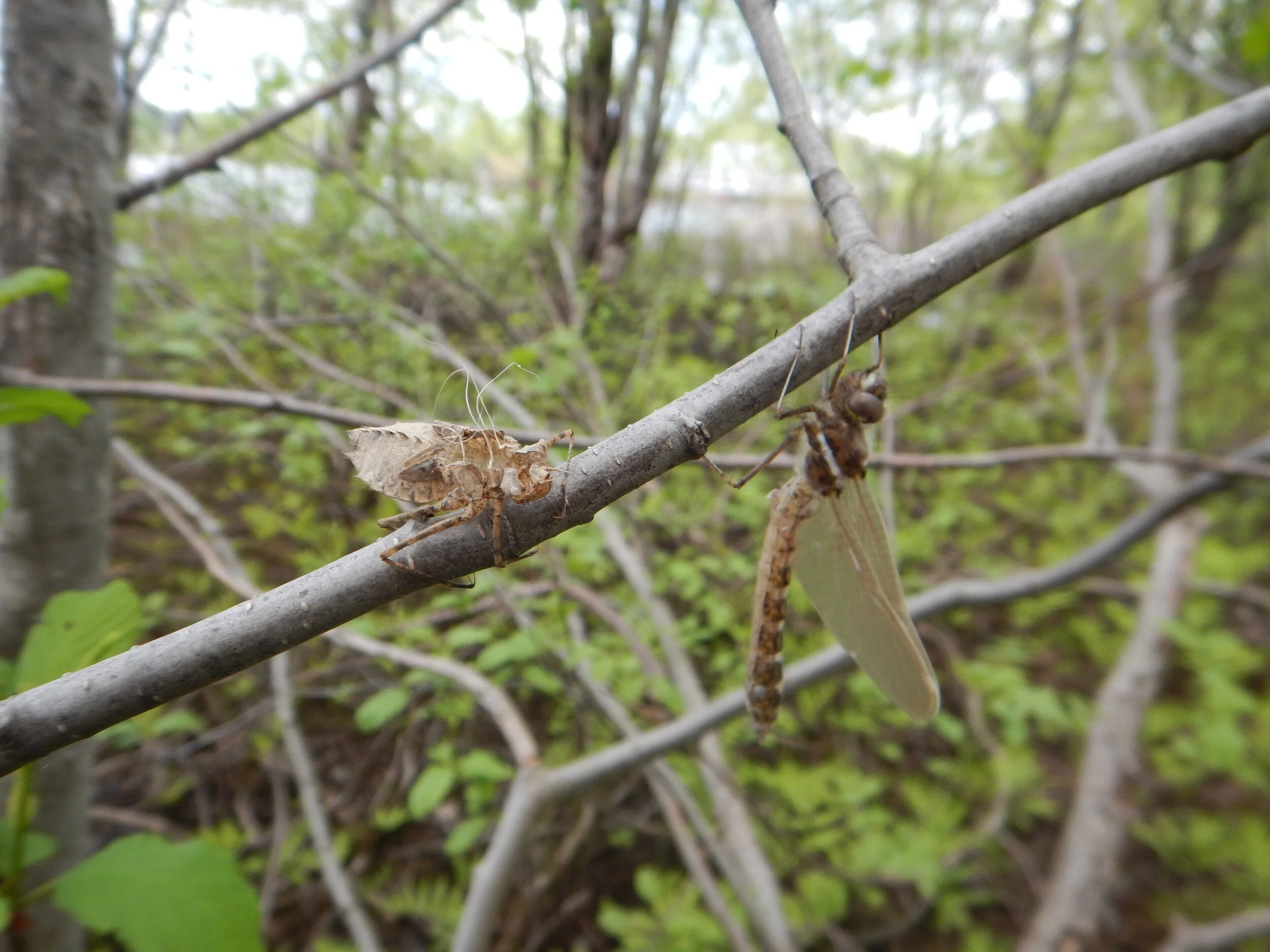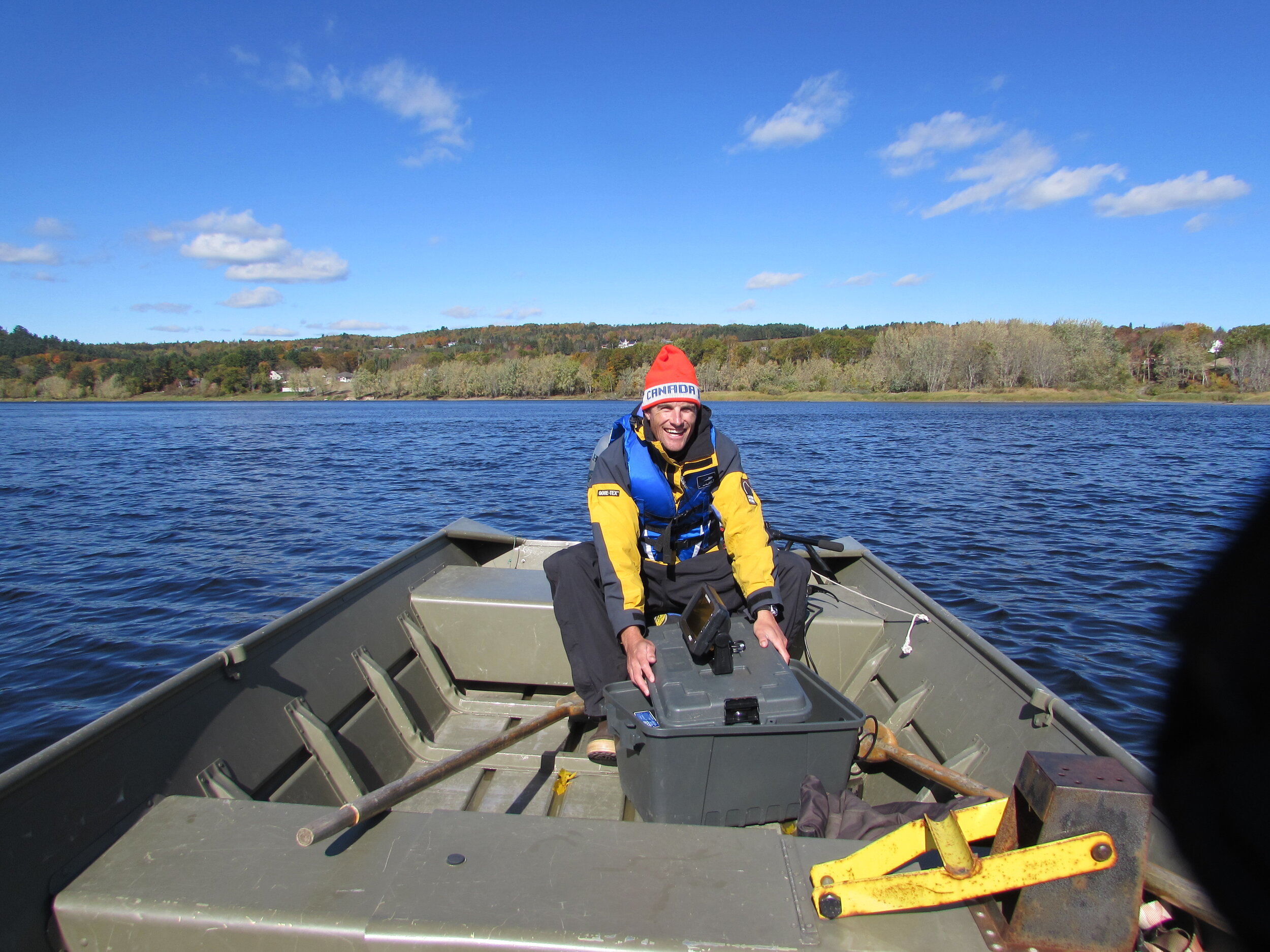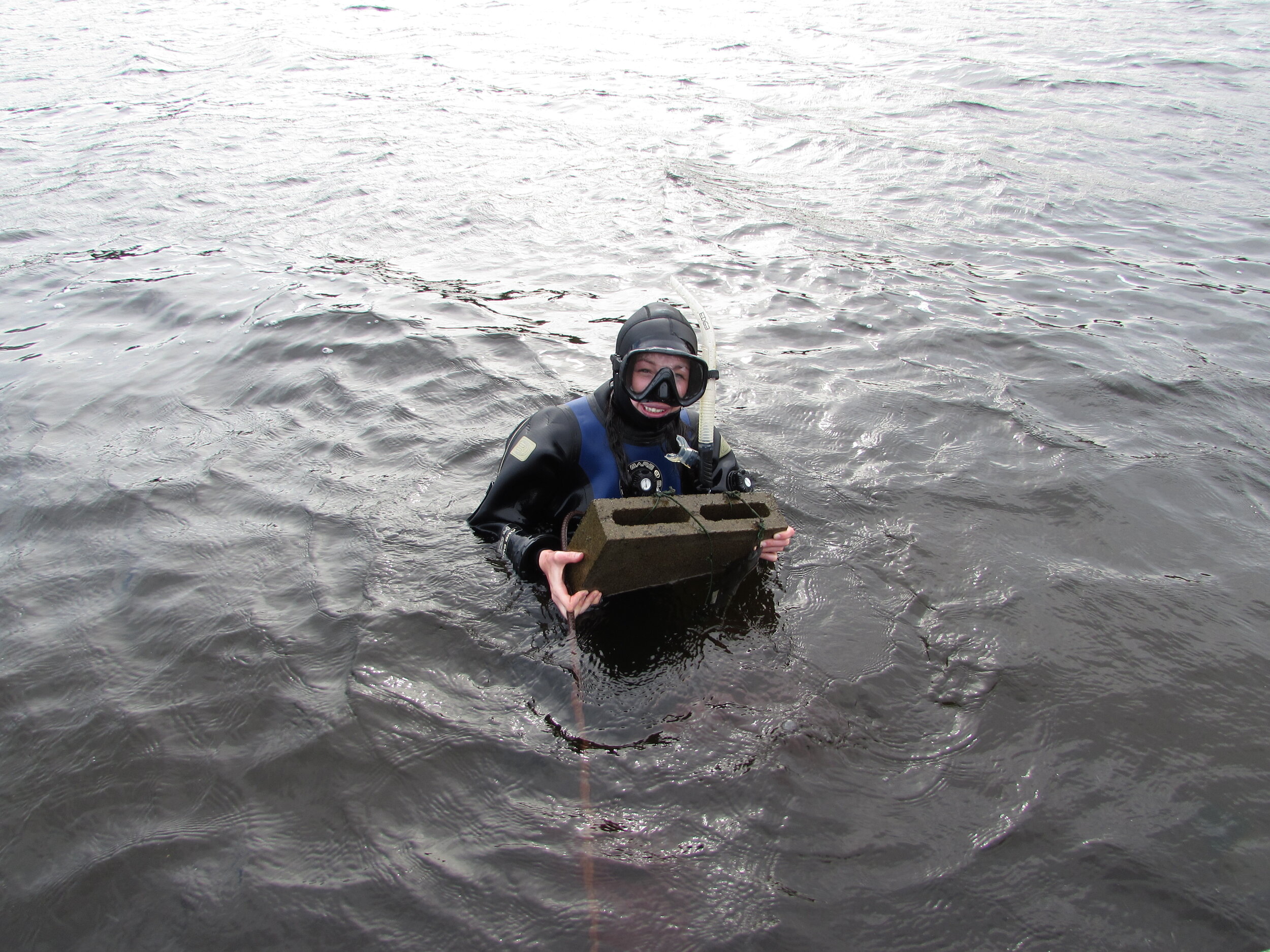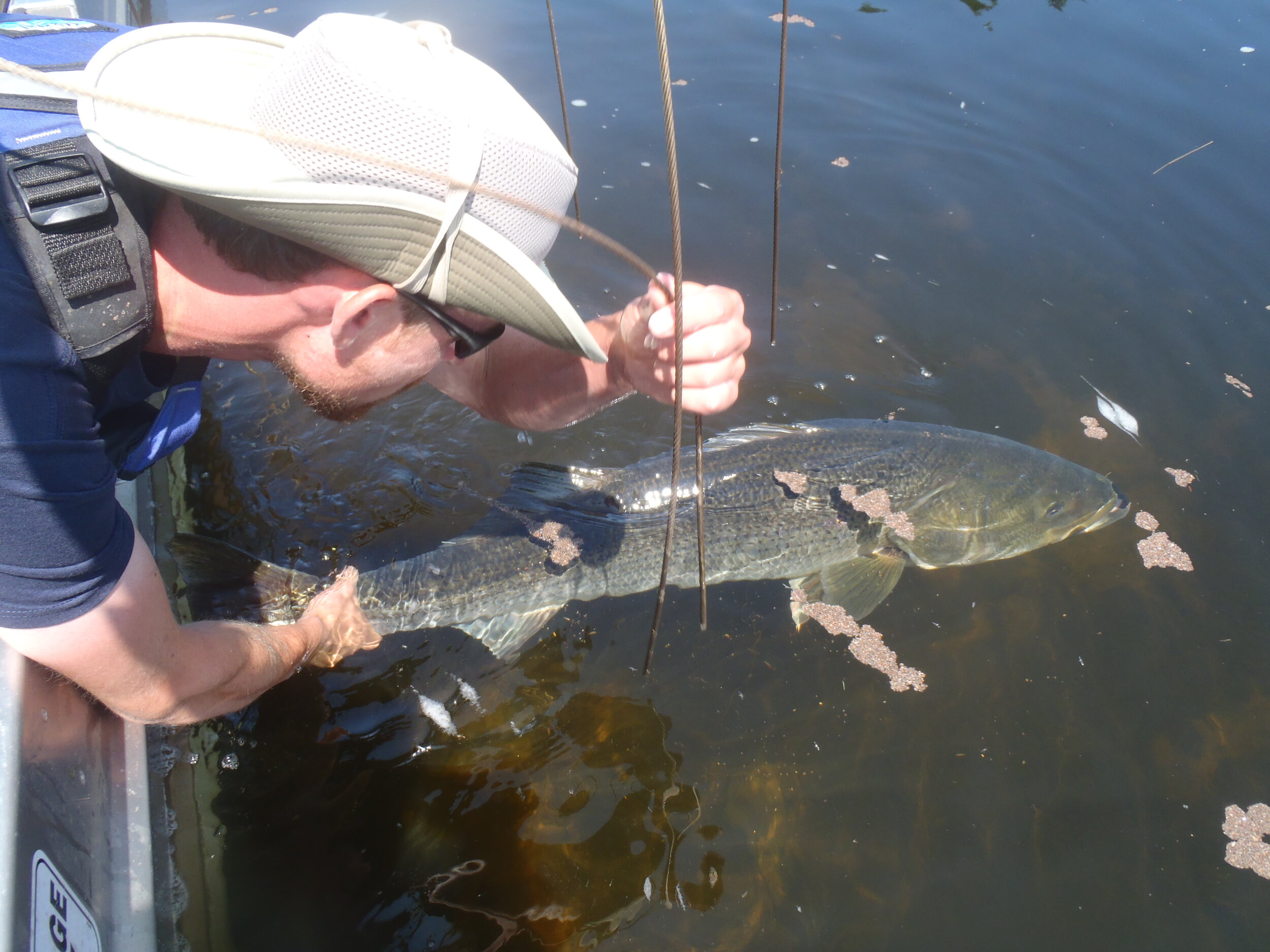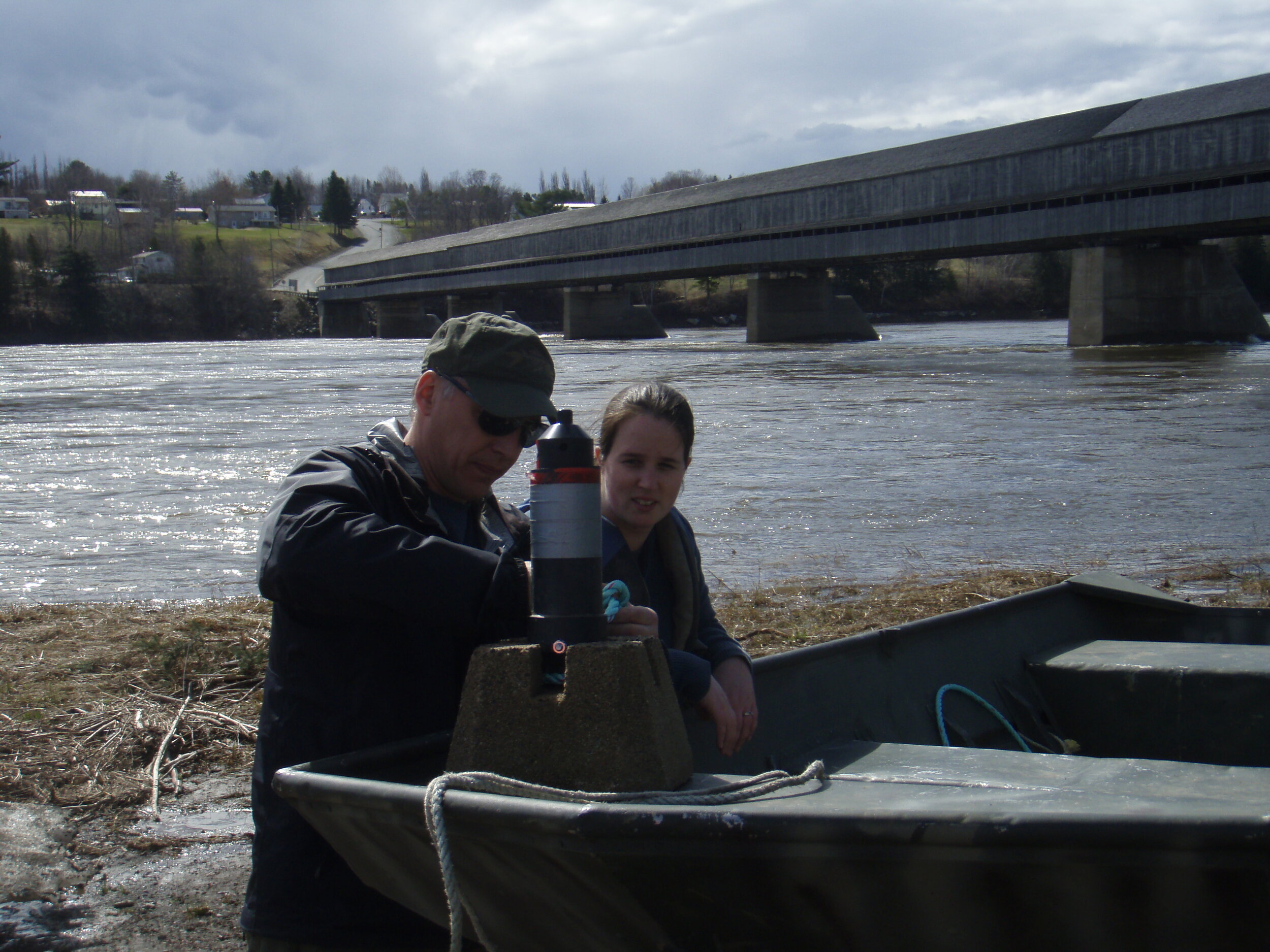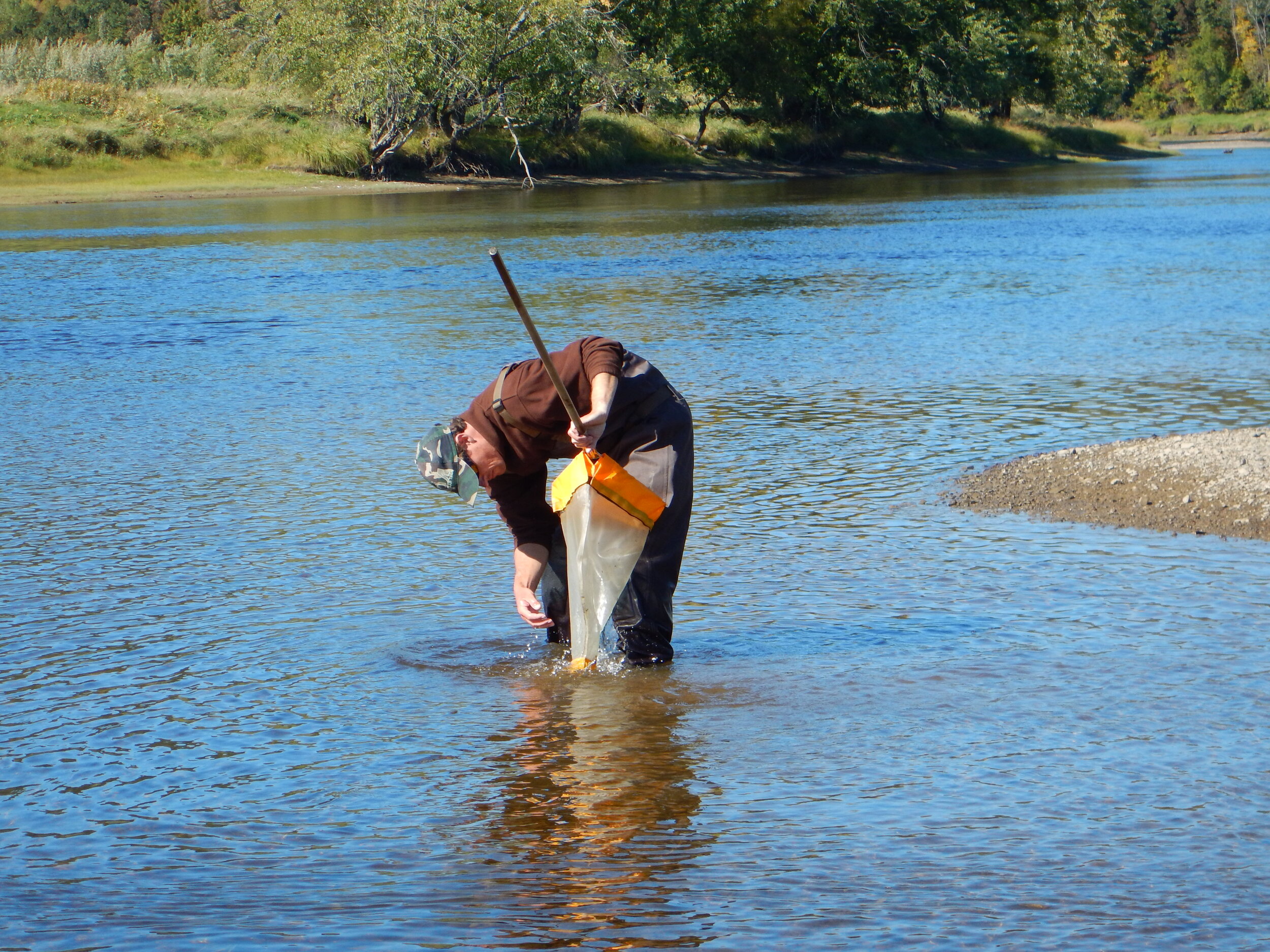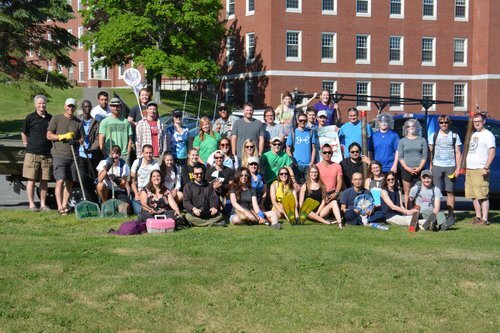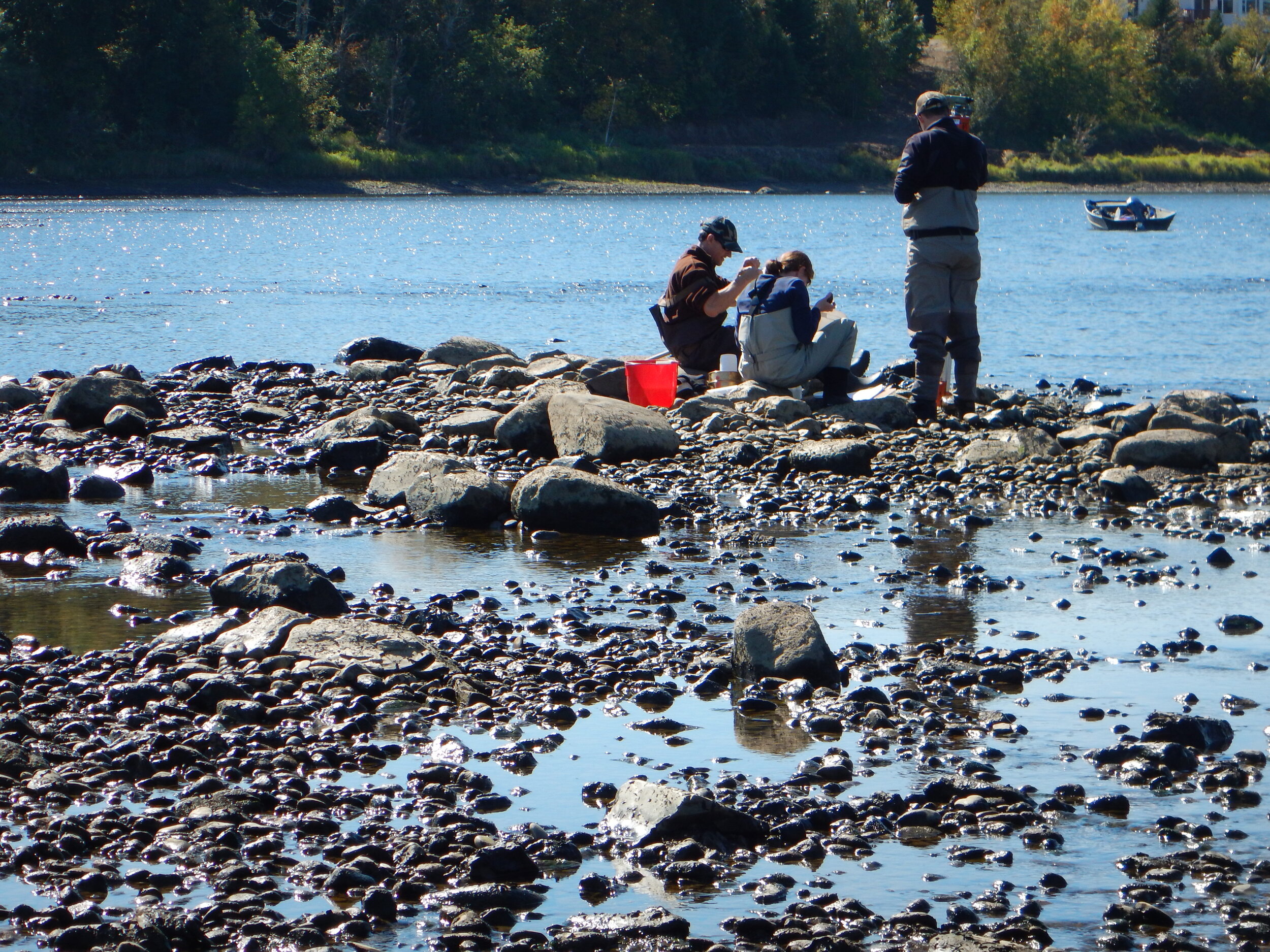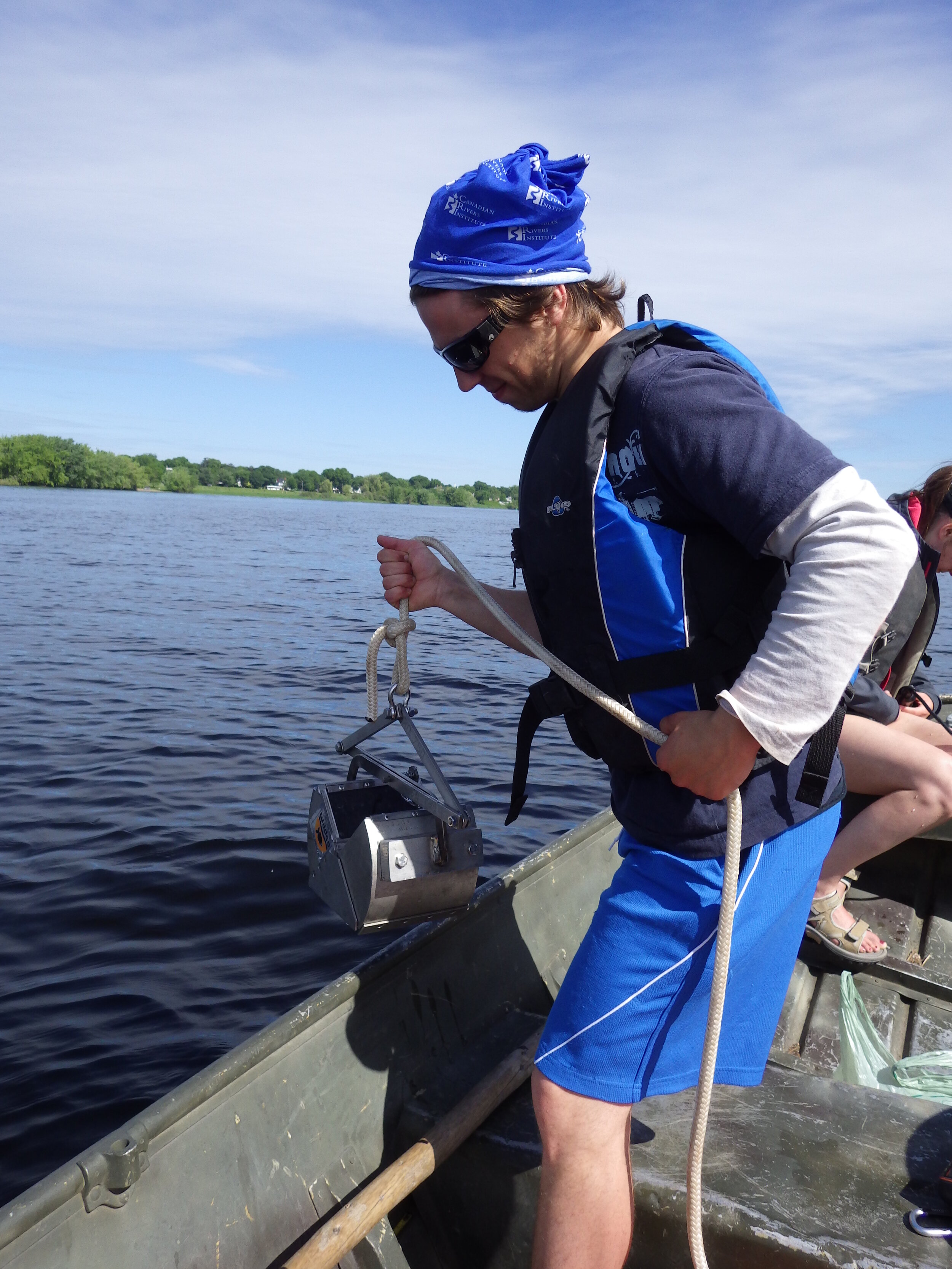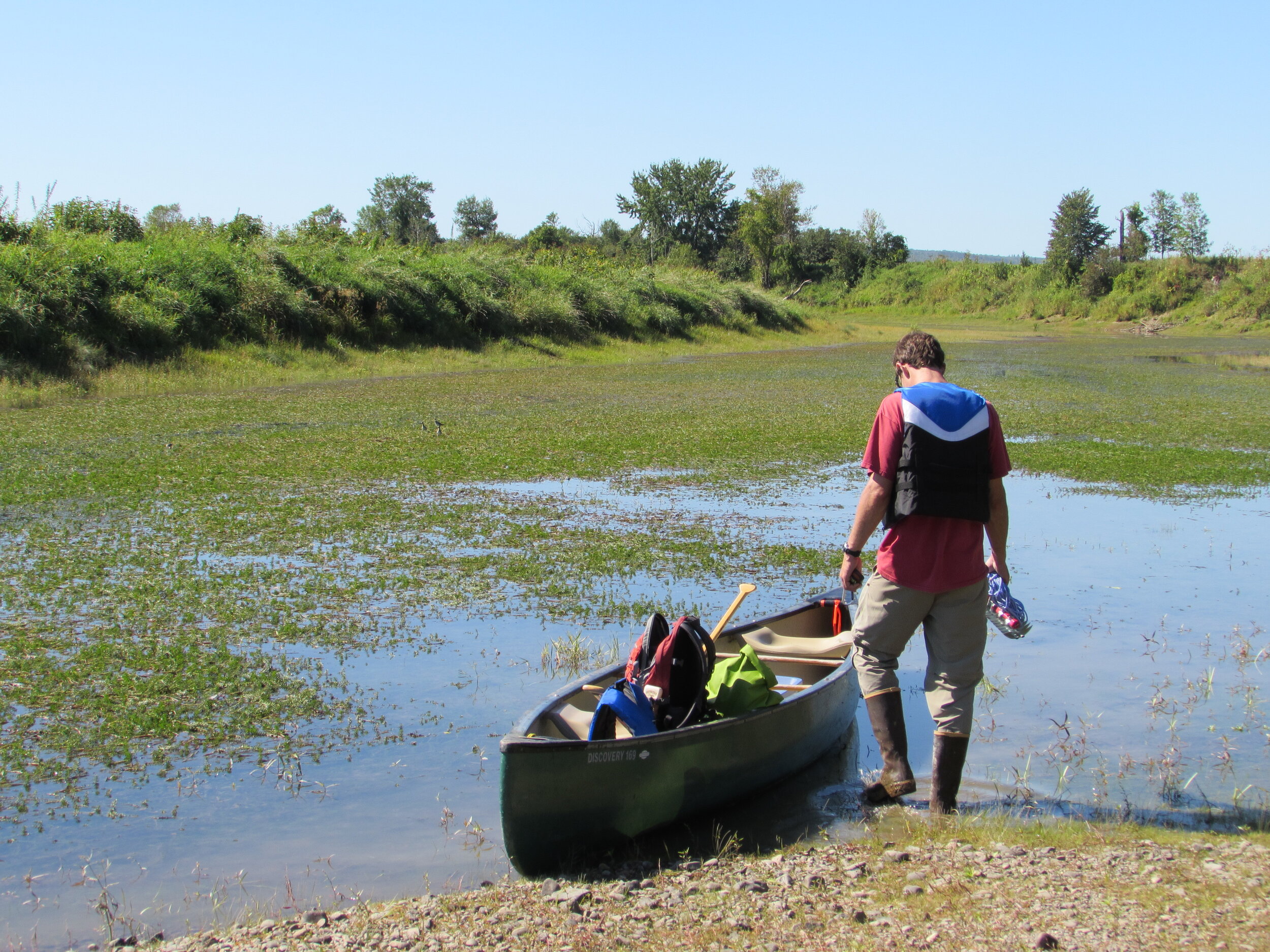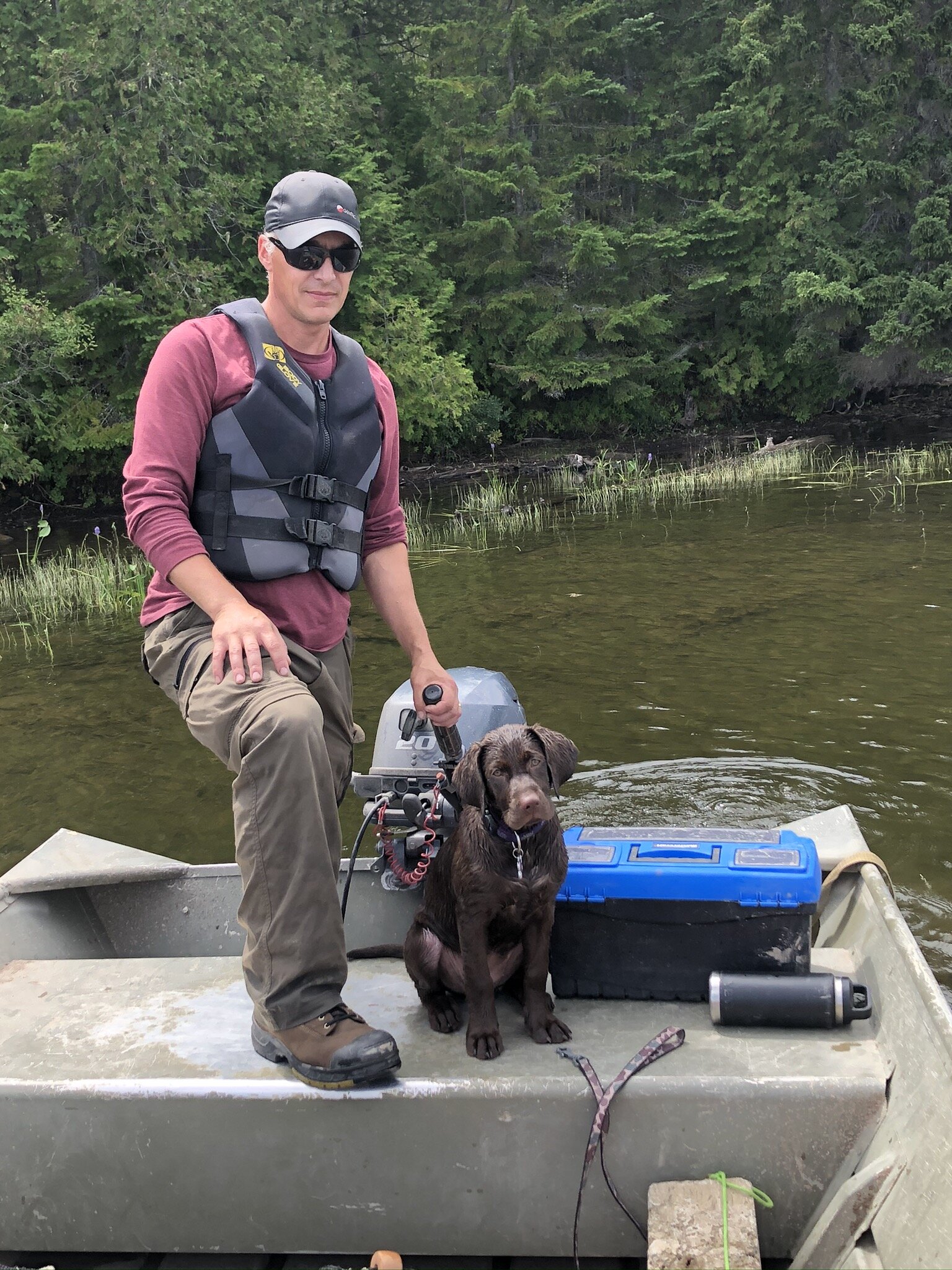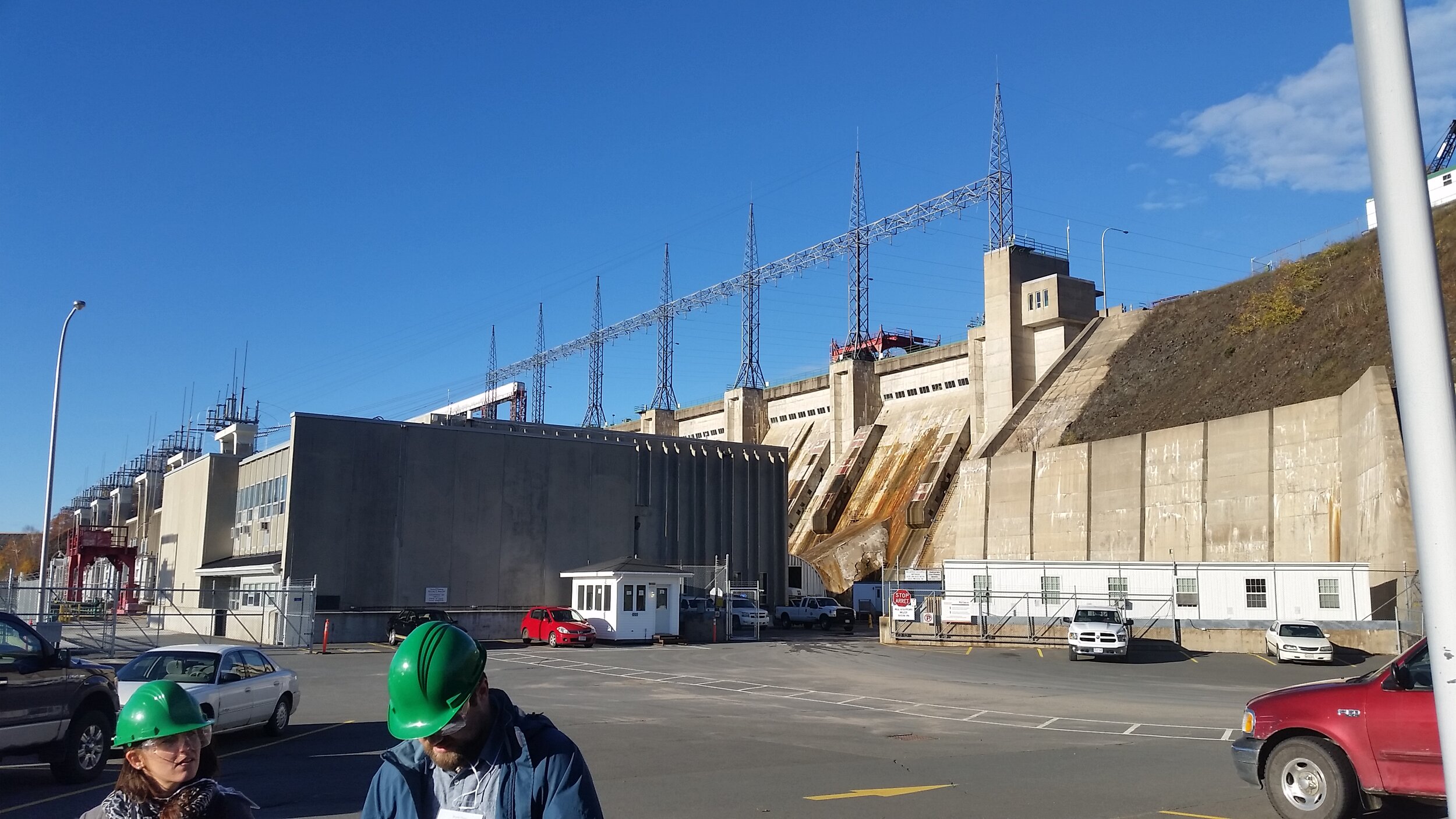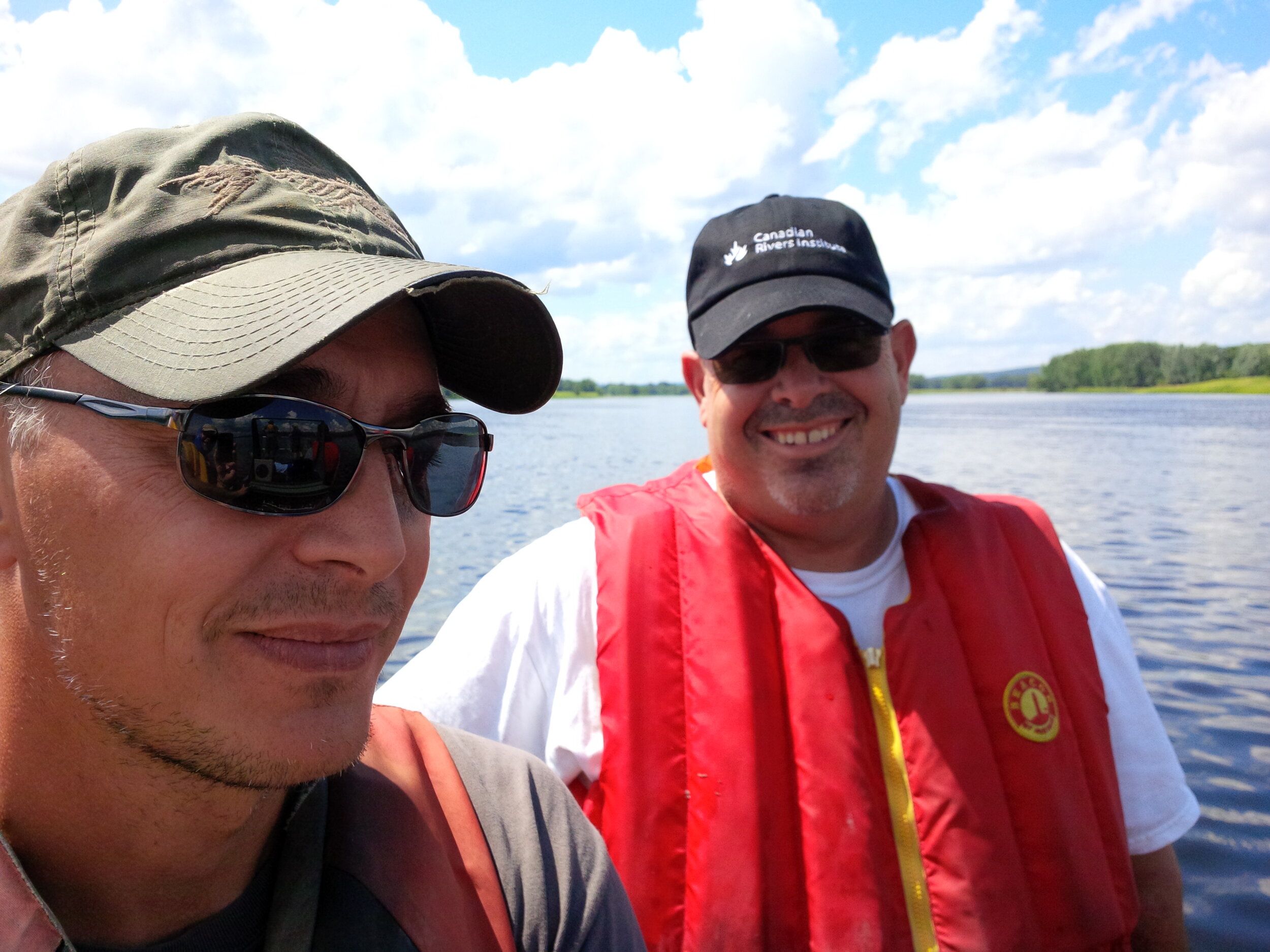MAES Study Team
The large-scale of this project demands a multi-tiered research management structure to ensure the rigorous and timely completion of all project study components and a successful integration with the needs of NB Power.
Postdoctoral Research Fellows
Dr. Matteo Giacomazzo
Graduate Students
William Millar, MSc Environmental Management candidate
Phillipe Hamel, MScE (Engineering) candidate
Hilary MacLean, MSc Biology candidate
Emma Lippert, MSc Biology candidate
Dan Arluison, MSc Biology candidate
Kaleb Zelman, MSc Biology candidate
Jaime Leavitt, PhD Engineering candidate
Felix Eissenhauer, PhD Biology candidate
Ryan Hill, PhD Biology candidate
Carolyn Brown, PhD Biology candidate (WLU)
Jenni Velichka, MSc Biology candidate (McMaster)
Negin Rahmati, MScE (Engineering) (INRS)
Principal Investigator – Dr. Allen Curry
Research Scientists
Dr. Jennifer Lento
Dr. Meghann Bruce
Dr. Phil Harrison
Project Manager – Gordon Yamazaki
GIS and Data Manager – Leigh Manley
Co-Investigators
Dr. Karen Kidd
Dr. Katy Haralampides
Dr. Kelly Munkittrick
Dr. Kurt Samways
Dr. André St-Hilaire
Dr. Scott Pavey
Dr. Tiger Jeans
Dr. Wendy Monk
Dr. Tommi Linnansaari
Project Technicians
Dave Blanchard, Senior Fisheries Technician
Caitlin Tarr, Fisheries and Aquatic Technician
Ashley DiMarco, Fisheries and Aquatic Technician
Patrick Reilly, Fisheries and Aquatic Technician
Siddharth Raval, Computational Fluid Dynamics Modeller
MAES Core Management Team


Dr. Allen Curry
Allen Curry is a professor of Biology, Forestry and Environmental Management at the University of New Brunswick (UNB) in Fredericton, NB, Canada. He was a founding member (2001) then Director of the Canadian Rivers Institute (CRI) from 2004-13 when he stepped down to become the Principal Investigator for the multi-million dollar Mactaquac Aquatic Ecosystem Study. He is a Fellow of the CRI, the NB Department of Natural Resources/Cloverleaf Foundation Professor of Recreational Fisheries Research, and Assistant Director-NB Cooperative Fish and Wildlife Research Unit. He has >100 peer-reviewed publications, reports, books, and book chapters in the fields of fish ecology, fisheries, freshwater/estuarine/reef ecology, ecohydrology, and various fields within hydrology from environmental flows to forest hydrology processes. He sustains a suite of research associates, post-doctoral researchers, technicians, and graduate and undergraduate students, and teaches courses on statistics for the environmental sciences and the impacts of humans on the coral reefs.
Dr. Allen Curry, Principal Investigator


Dr. Jennifer Lento
Dr. Jennifer Lento is a Research Scientist with the Canadian Rivers Institute, based in the Department of Biology at the University of New Brunswick (Fredericton). Her research focus is diversity and ecological function of freshwater food webs, with an emphasis on benthic communities. Her research evaluates the structural and functional biotic response to natural drivers and anthropogenic stressors as a way to inform practical applications of biomonitoring. This includes the development of biomonitoring designs and testing of appropriate biotic response metrics. Dr. Lento is involved in the eflows, benthic macroinvertebrate, and stable isotope projects in MAES.
Dr. Jennifer Lento, Research scientist


Dr. Philip Harrison
Dr. Philip Harrison is a Research Scientist in the MAES team at UNB, where he specialises in fish passage. Philip’s research focusses on the spatial ecology of fish and their interactions with hydropower. He has extensive experience working on both applied and basic fish ecology questions in the Columbia and Peace River watersheds in western Canada. Phil has worked with a range of species, including salmonids and gadoids, and has developed considerable expertise in the field of downstream passage and turbine entrainment. Phil’s current projects include assessments of downstream and upstream passage at the Mactaquac Dam using a range of techniques including sensor fish, PIT arrays, fine-scale and broadscale acoustic telemetry and ARIS technology.
dr. philip harrison, research scientist


Dr. Meghann Bruce
Dr. Meghann Bruce is a Research Scientist and Assistant Project Manager for the Mactaquac Aquatic Ecosystem Study at the University of New Brunswick (UNB; Fredericton, NB, Canada). A naturalist with a keen interest in aquatic ecosystems, her research projects emphasize the application of science-driven biomonitoring initiatives to support aquatic ecosystem managers in decision making processes. Her current research projects include investigations of aquatic macrophyte habitats in relationship to environmental flows, the colonization and impact of an introduced and invasive aquatic macrophyte (Eurasian water milfoil), as well as seeking to understand the environmental conditions contributing to the recent appearance of toxin-producing cyanobacterial mats in the Saint John River. In addition to her research, Meghann teaches undergraduate courses and field-based workshops in the fields of botany and conservation/environmental biology.
dr. meghann Bruce, research scientist


Gordon Yamazaki
Gordon is an expert in federal and provincial environmental assessment regulations and regulatory affairs, specifically as they relate to large-scale development and ecosystem restoration projects in New Brunswick. He was a key member of the environmental assessment team, and co-developed and managed the largest EA Follow-up Program ever undertaken within the Province of New Brunswick – the Petitcodiac Causeway Dam Removal Project in Moncton, New Brunswick – and also managed the Eel River Dam Removal project implementation and follow-up program in northern New Brunswick. Gordon has managed the Mactaquac Aquatic Ecosystem Study since its Phase 1 beginning in October 2013. He is also an aquatic ecologist and geologist, having designed, managed, and taken part in many aquatic baseline surveys in support of EAs, and continues to be involved with sediment-related and engineering-based studies in MAES. As Project Manager, he is also responsible for liaison with the Industry Partner – New Brunswick Power.
Gordon yamazaki, project manager


Leigh Manley
Leigh is a GIS and data expert, with expertise in ESRI and Oracle geospatial database design, integration, and security. She is proficient in an assortment of technologies, including Access, Oracle, MS SQL Server, ESRI ArcGIS, QGIS, and ArcGIS Online. Leigh has experience in industries including post-secondary and primary school education, government, and utilities. Leigh joined the MAES Project in Phase II, and manages field- and lab-based data for MAES. Her current projects include field and lab database integration, field tablet implementation, and the creation of a cloud-based MAES data archive. Leigh holds a Master’s degree from the University of Toronto, and a BA (Hons) from Mount Allison University.
leigh manley, gis and data manager
MAES cO-INVESTIGATORS


Dr. Wendy Monk
Research Scientist, Environment and Climate Change Canada, Visiting Research Fellow, Faculty of Forestry and Environmental Management at UNB Fredericton, and Fellow, Canadian Rivers Institute
Wendy’s research focuses on the spatial and temporal integration of ecology and hydrology (ecohydrology), and how we can use this knowledge to better understand our freshwater ecosystems. Her primary research explores the application of environmental flows through the integration of social-cultural and environmental components via data mining, geospatial analyses, multivariate techniques, and novel monitoring methods. Wendy’s research and collaborations includes a national hydrological regime classification, extensive flow-ecology analyses, targeted flow stressor-specific diagnostic indices, and the development and the application of environmental flows frameworks for rivers across Canada.
Dr. Wendy monk


Dr. Kelly Munkittrick
Kelly Munkittrick is the CAIP Research Chair in Ecosystem Health Assessment at the University of Calgary. Kelly was a Research Scientists with the Federal government for 11 years (6 in Fisheries and Oceans and 5 at Environment Canada), a Tier 1 Canada Research Chair in Ecosystem Health Assessment at the University of New Brunswick for 14 years, and Director, Environmental Monitoring and Risk Assessment, at Canada’s Oil Sands Innovation Alliance (COSIA) in Calgary for 5 years. Most recently, he was the Executive Director of Cold Regions and Water Initiatives at Wilfrid Laurier University. He is a co-founder of the Canadian Rivers Institute, was Scientific Director of the Canadian Water Network, and has sat on scientific panels for UNEP, OECD, and the Great Lakes Fisheries Commission. He has designed monitoring programs in North and South America, and Asia, and has taught environmental monitoring study design in more a dozen countries. Our participation in the MAES projects is focused on trying to develop stronger linkages in the environmental assessment process between monitoring conducted during baseline, construction, and post-operational monitoring programs. The principle is the development of tiered and triggered adaptive monitoring programs that better link retrospective monitoring and predictive modelling in a feedback loop that iteratively improves the role of both in cumulative effects assessment.
Dr. kelly munkittrick


Dr. Tommi Linnansaari
Dr. Linnansaari has a M.Sc. in Fisheries Science from University of Helsinki, Finland, and his Ph.D. in Biology from UNB. He currently holds the Atlantic salmon Research Chair and he is the research coordinator of the Collaboration for Atlantic Salmon Tomorrow (CAST) consortium. His main research focus is on understanding the mechanisms of Atlantic salmon population dynamics in natural and hydropower regulated rivers, but he also undertakes research on other migratory fishes (American eel, Striped bass), their habitat and interconnected biota. Dr. Linnansaari is also a member of the Atlantic Salmon Research Joint Venture; a large government-led consortium established to facilitate large collaborative projects to conserve Atlantic salmon.
Dr. tommi linnansaari


Dr. André St-Hilaire
His research has focused on hydrological and water temperature modelling for the last 10 years. He has developed and/or adapted several thermal models used to analyse and simulate river water temperature. He participated in a major project that developed a water temperature model for the St.Lawrence River,which wasapplied to additionally develop a fish habitat model. Andre has modelled river temperatures for Hydro Québec/Ouranos to characterize thermal refugia for salmonids and he is currently leading a water temperature forecast modelling project for impounded rivers with hydraulic structures operated and managed by Rio Tinto Alcan. He has also modelled turbidity of the Saint John River for the Saint John Port Authority.
Dr. André St-Hilaire


Dr. Scott Pavey
Dr. Scott A. Pavey is broadly interested in ecology, evolution, and conservation. He holds a Research Chair of Aquatic Molecular Ecology and Ecological Genomics that uses the most state-of-the-art technologies and the scientific techniques to address basic and applied questions in conservation, fisheries management, and ecological genomics. By scanning the DNA of wild populations, we can reveal which parts of the DNA are coding for which traits, and what adaptions are most important for persistence in different environments. This research will then be used to better assess and manage regional fish populations and the effects that human-induced and environmental changes have on these species.
Dr. scott pavey


Dr. Karen Kidd
Karen Kidd is the Jarislowsky Chair in Environment and Health and a Professor at McMaster University. She moved to McMaster in 2017 after many years at the University of New Brunswick as a Canada Research Chair in Chemical Contamination of Food Webs. Karen is an ecotoxicologist and her group studies the effects of dams, forestry, agriculture, aquaculture and municipal wastewaters on aquatic ecosystems, and the accumulation of contaminants in freshwater food webs. As part of the research on the Mactaquac project, her group is assessing the spatial patterns of metals, hydrocarbons and chlorinated pesticides in sediments from the headpond and assessing the levels of mercury in different fish from sites upstream and downstream of the dam, especially species that are consumed by local communities. More information on her program can be found at www.karenkiddlab.com.
Dr. karen kidd


Dr. Katy Haralampides
Katy Haralampides is a professor of Civil Engineering at UNB in Fredericton, NB. She has an active research program in ecohydraulics, participating in multidisciplinary projects using numerical and physical models to understand dynamic river processes, including movement and fate of sediment. Working with biologists to understand the interactions with aquatic species, she and her students have conducted research in the hydrodynamically complex industrial Port of Saint John, the ecologically important and diverse mudflats of the Bay of Fundy, and the sediment laden Petitcodiac River. More recently, her team has been developing hydrodynamic and sediment transport models of the Saint John River as part of the Mactaquac Aquatic Ecosystem Study (MAES). Katy also has interest in developing alternative pedagogies and curricula that incorporate social justice issues into conventional engineering classrooms, with a hope of increasing diversity and equity and reshaping the future of the engineering profession towards one that is positive and ethical.
Dr. katy haralampides
Dr. tiger jeans


Dr. Kurt Samways
Dr. Kurt Samways is Parks Canada Research Chair in River Restoration in the Department of Biological Sciences at the University of New Brunswick Saint John Campus. His expertise is in the ecological linkages between freshwater and marine ecosystems, and the sustainability of fish populations.
dr. kurt samways
MAES postdoctoral fellows
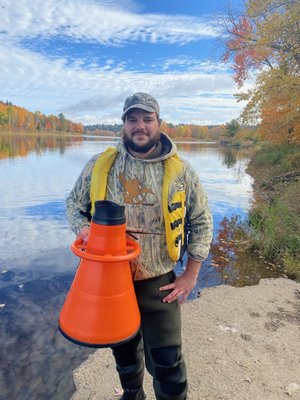

Dr. Matteo Giacomazzo
Matteo Giacomazzo received his PhD in 2021 under the supervision of Profs. Pierre Magnan and Andrea Bertolo at the University of Québec at Trois-Rivières. He investigated the lack of recovery of a collapsed yellow perch population (lake Saint-Pierre, St. Lawrence River), focusing on the relationship between water quality and aquatic vegetation, affecting yellow perch abundance and growth at different life stages, and how these factors influenced the fish community structure. He is currently working on the determinants of salmon juveniles production in the Miramichi River under the supervision of Profs. Allen Curry and Kurt Samways. By linking environmental variables to primary (i.e. periphyton) and secondary (i.e. invertebrates) productivity, the focus is to implement models to predict salmon juveniles abundance. Matteo is mainly interested in habitat selection, community ecology, and trophic networks, with particular emphasis on network modelling aiming to establish causality between compartments.

